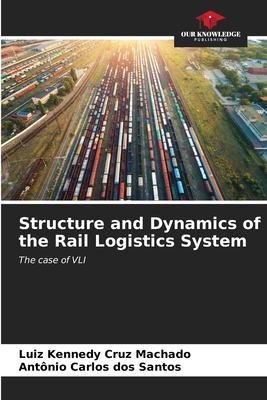A country’s economic development is directly related to its investments in infrastructure, more precisely the transportation sector and its various modes that make up the sector’s logistics chain. Industrial progress depends on these investments in order to move its products safely, reliably and at the lowest possible cost. The importance of rail transport for Brazil’s development is obvious, its main characteristic being its ability to transport large volumes of cargo over medium and long distances, with greater safety and efficiency, when compared mainly to road transport. However, Brazilian rail transport is in a critical situation, perhaps due to the focus on investments in the road sector over the last few decades. VLI is a standout on the national rail scene, has been in the process of developing its governance structure over the last few years and is making recurrent investments in infrastructure.
| FindBook |
有 1 項符合
Structure and Dynamics of the Rail Logistics System的圖書 |
 |
Structure and Dynamics of the Rail Logistics System 作者:Cruz Machado 出版社:Our Knowledge Publishing 出版日期:2024-02-20 語言:英文 規格:平裝 / 120頁 / 22.86 x 15.24 x 0.71 cm / 普通級/ 初版 |
| 圖書館借閱 |
| 國家圖書館 | 全國圖書書目資訊網 | 國立公共資訊圖書館 | 電子書服務平台 | MetaCat 跨館整合查詢 |
| 臺北市立圖書館 | 新北市立圖書館 | 基隆市公共圖書館 | 桃園市立圖書館 | 新竹縣公共圖書館 |
| 苗栗縣立圖書館 | 臺中市立圖書館 | 彰化縣公共圖書館 | 南投縣文化局 | 雲林縣公共圖書館 |
| 嘉義縣圖書館 | 臺南市立圖書館 | 高雄市立圖書館 | 屏東縣公共圖書館 | 宜蘭縣公共圖書館 |
| 花蓮縣文化局 | 臺東縣文化處 |
|
|
圖書介紹 - 資料來源:博客來 評分:
圖書名稱:Structure and Dynamics of the Rail Logistics System
|











